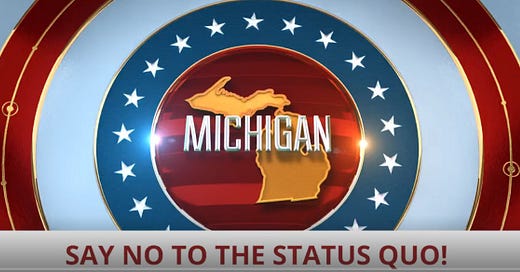On January 13, 2024, the Michigan Republican Party is expected to propose procedural changes to the way candidates are selected and placed on the ballot that will revolutionize voting in our state. Currently, with the exception of attorney general, secretary of state, lieutenant governor, and university regents, candidates for partisan elected offices must win both a primary and a general election. Primaries typically take place during the first Tuesday of the first full week in August, followed by general elections the first Tuesday of the first full week in November. In the primary election, one republican candidate is selected by the voters among a list of hopeful republican candidates for each particular office. Conversely, candidates for regent, lieutenant governor, attorney general, and secretary of state are selected by precinct delegates at a statewide convention. If the Republican party passes the proposed resolution, all partisan candidates will be selected in the same fashion as the regents, lieutenant governor, attorney general, and secretary of state, thus removing the historical step of a primary election.
There are several issues with the current primary election system. First of all, it is expensive and time consuming for local candidates to fund raise and campaign twice. Secondly, although voters must decide whether to vote in the Republican or Democratic primary, the State of Michigan holds open primaries, so there is nothing to stop voters from switching sides and voting in the other party’s primary. This action can lead to candidates less desirable to partisan voters being placed on the ballot. Additionally, it is no secret many people vote in elections that are not well informed. Busy daily activities, life events, and lack of interest result in a significant portion of the population ignoring issues until election day when they seek advice from trusted friends. If the new procedures are implemented, these problems should be reduced.
Therefore, candidates for partisan offices such as board of commissioner, sheriff, and county and township treasurers and clerks, would be selected by precinct delegates at conventions. Note that this does not include school board candidates as they are labeled non-partisan.
Precinct delegates are local party representatives. The number of delegates depends on voting precinct size, but it is common to have around four representative delegates per precinct. Precinct delegates engage in activities such as door knocking, volunteer staffing of offices where yard signs and voter information is distributed, and talking to neighbors about candidates and issues. Precinct delegates also attend local county conventions to determine which delegates will represent them at state-level conventions where candidates for attorney general, secretary of state, lieutenant governor, and party leadership is determined.
On February 18, 2023, Kristina Karamo was elected chairperson of the Michigan Republican Party (MIGOP). Prior to this, the party was heavily influenced by large financial donors. The proposed changes will decentralize the candidate selection process thereby increasing local control. The Michigan Republican Party released a video explaining more of the reasoning for the proposed change.
https://rumble.com/v45eetz-say-no-to-the-status-quo.html
If the resolution is passed by the Michigan GOP at the January 13, 2024, state convention, the details are expected to be sorted out by the Policy Committee and finalized February 12, 2024. Candidates for partisan positions will then likely be selected by precinct delegates at county conventions that will take place in early April and at district level conventions that will take place in May.


